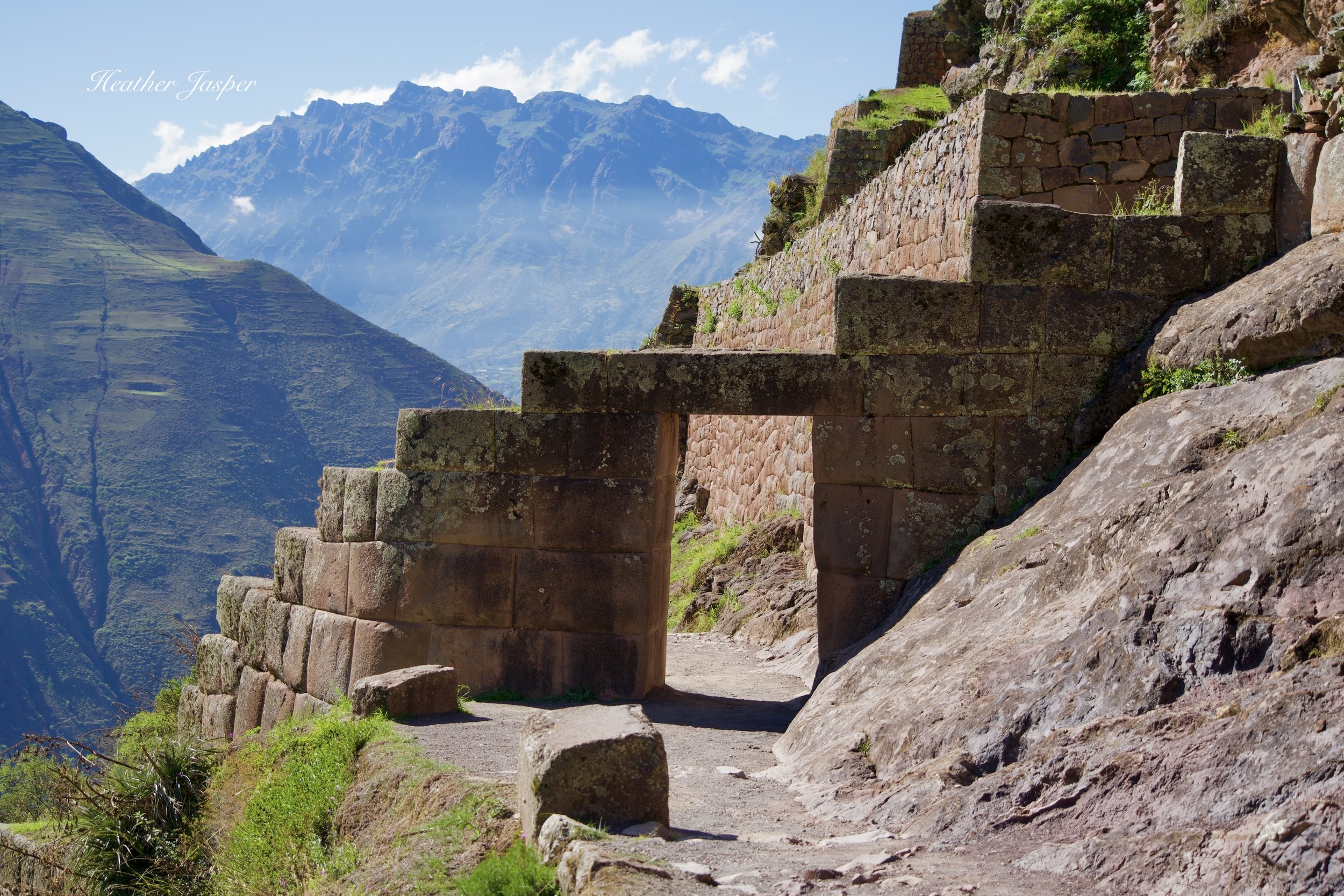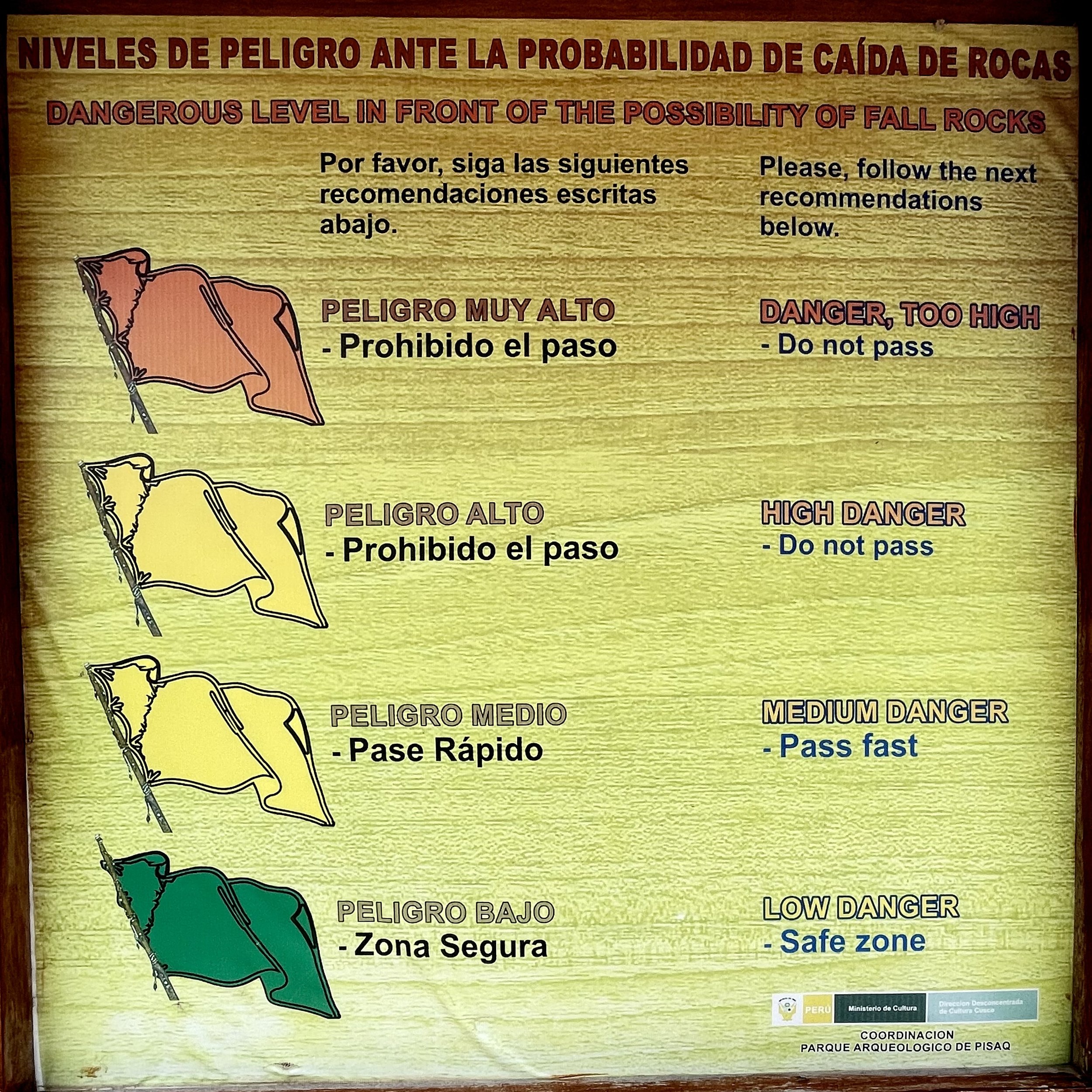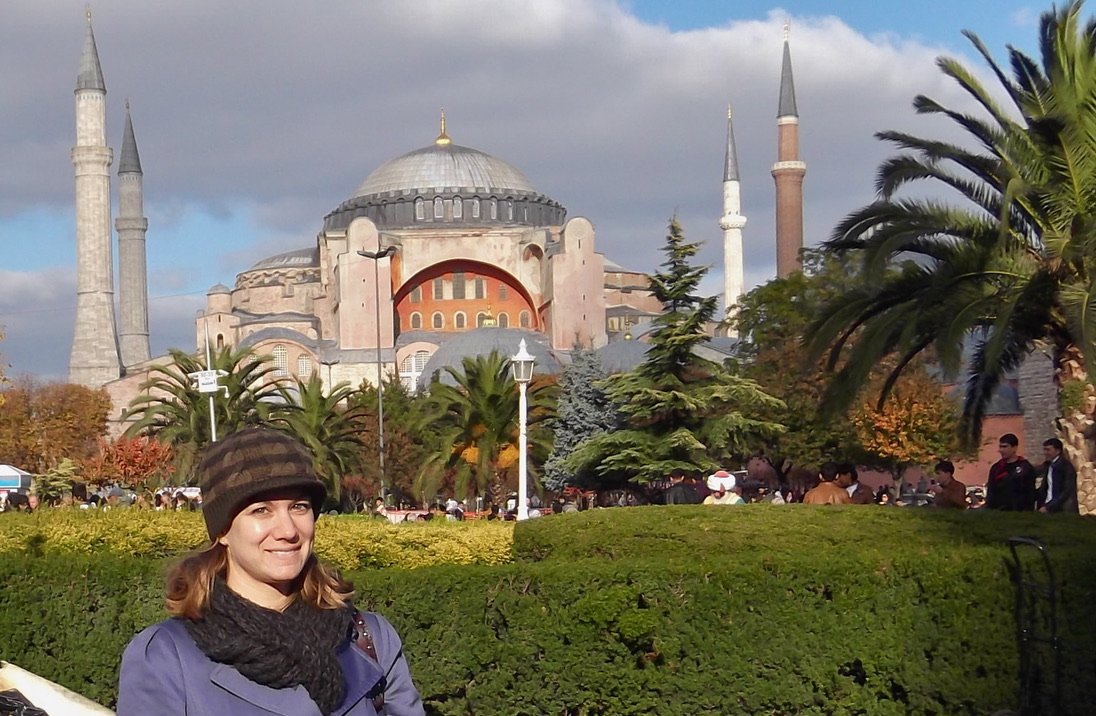Travel Tip 33
How to prepare for disasters during travel.
If you really want an earthquake-proof hotel, look for places like Earth Tones Tiny Homes in Ollantaytambo, Peru.
This week is a rerun since I’m on a solo trip to Medellín and the mountains around Manizales, Colombia. The country has been experiencing terrible forest fires and reached out to several countries for help. So far, the US, Canada, Peru and Chile have sent fire fighters.
After the fires in Hawaii last year, a lot of tourists started wondering what to do if we’re caught on vacation during a natural disaster. Even before the Maui fires, the 2004 tsunami in Thailand made travelers have been painfully aware that tourist destinations aren’t immune from natural disasters.
Doorways are one of the safest places during an earthquake, whether the door is Ottoman or Inca.
The questions is: how to prepare for disaster?
First, you need some background on your destination.
If you’re going to the Caribbean between June and November, you should know that it’s hurricane season. If you’re going to Istanbul, you should know that the city is prone to earthquakes.
Once you’ve researched the biggest disaster risks in your destination, take a little time to learn what best practices would be. Make sure you know what to ask for when you get to your destination. In Nepal, ask where to go in case of earthquake. In Chile, ask where the nearest tsunami escape route is. In Iceland, ask what to do in case of a volcanic eruption.
Millions of people live in and visit disaster prone regions around the world. Just think about the 1.5 million people who go to Mardi Gras in New Orleans every year. When in doubt, ask a local what to do.
Pay attention to signs
Make sure you know what emergency exit signs look like where you’re traveling - especially if you’re somewhere that you don’t speak the language.
These flags show people dangerous and safe areas of the Pisac Archeological site for rockfall and earthquakes.
Register your trip with your embassy.
For US citizens, register with the STEP program. For other nationalities, check with the embassy in the country you’re going to. They may have a way to register your phone number with them so that you’ll receive automatic warnings on your phone in case of a disaster.
Wherever you decide to go, don’t let potential disasters derail your fun.
No matter how much it’s in the news, the chances that you’ll experience a natural disaster are slim. Like you would at home, be aware of the most common risks but don’t let it ruin your trip.
Blog
Peru isn’t the first earthquake-prone place I’ve lived. The year I lived in Istanbul, there weren’t any large earthquakes but earthquake drills at the school I worked at were much more thorough than anywhere else I’d ever worked. The Aya Sofya (in Greek Hagia Sophia) is a building that has survived countless earthquakes and is the first thing I think of when I think of a building being earthquake proof. This blog was from 2012 when it was a museum. It has since been turned back into a mosque.
Article
My top 8 tips for maintaining mental health while traveling.
Unfortunately, we don’t just have to watch out for external disasters when traveling. It’s important to pay attention to our mental health to prevent self-inflicted disasters. I wrote these travel tips for people with a mental health diagnosis, but some of them are applicable for anybody.






